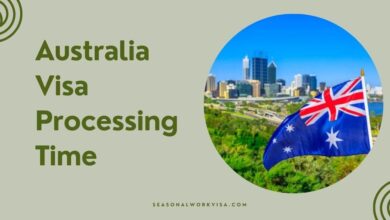Countries for Part-Time Jobs While Studying Abroad 2026

Dreaming of studying abroad is exciting, but there’s more than just picking a beautiful country or a prestigious university. Germany, Canada, Australia, France, and New Zealand offer not only world-class education but also flexible work opportunities for international students and pathways to gain valuable work experience after graduation.
Each country has its own rules about work hours during study and after graduation, making it easier for students to support themselves while exploring life in a new culture.
List of Countries:
Germany:
Due to its well-known educational system and drum roll, please public colleges that offer free tuition, Germany has long been a popular destination for overseas students. Yes, you heard correctly. But with all the bratwurst and pretzels, how can one pay for living expenses?
- Employment Opportunities: You are allowed to work 120 full days or 240 half days per year as an international student (Ref). Opportunities abound, whether it’s helping with innovative research or preparing the best schnitzel.Promotion
- Post-Graduation Benefits: Germany provides an 18-month residency permit to help you find employment related to your subject of study after you throw in your graduation cap. Many recent grads discover that they fit right in with the German workforce.
Canada:
Canada is a favored choice for students from all over the world because of its welcoming culture and diversified cities, but it’s not only maple syrup that offers great deals.
- Flexibility on and off campus: International students are permitted to work full-time during planned breaks and up to 20 hours per week during the academic year. The finest aspect? Your study permission covers you; you don’t need a separate employment permit.
- Pathway to Permanence: You can obtain useful job experience after studying in Canada through the Post-Graduation job Permit Program (PGWPP), which can serve as a springboard for permanent residency. Canada acknowledged the achievements of international graduates by extending work permits for specific programs beyond the customary three-year period.
Australia:
Australia isn’t just about kangaroos and stunning beaches; it’s also a hub for quality education and work opportunities.
- Abundant Work Hours: During the semester, students are permitted to work up to 40 hours every two weeks, and during breaks, they are free to work as much as they want. You can fund your outback experiences and gain experience thanks to this flexibility
- Stay and Play: Post-graduation, you can apply for the Temporary Graduate Visa (subclass 485), granting you between 18 months to 4 years to live and work in Australia, depending on your qualification.
France:
Ah, France the ideal of art, culture, and scrumptious pastries. But did you know it’s also a terrific place for international students seeking career opportunities?
- Work Rights: You are permitted to work approximately 20 hours each week, or 964 hours annually, which is ideal for juggling your education with a part-time job at that quaint café down the street (Ref).
- Affordable Education: A lot of public colleges provide courses at low costs, which makes budgeting simpler. Additionally, to ease the burden, the French government offers a variety of scholarships.
Check Also: List of Countries Eligible for US Visa Waiver Program
New Zealand:
New Zealand is gaining popularity as a study destination because of its beautiful scenery (hello, Middle-earth!) and welcoming people.
- Work While Studying: During the school year, international students are permitted to work up to 20 hours a week, and during the holidays, they are permitted to work full-time (Ref). The relaxed work atmosphere in New Zealand guarantees that you won’t feel overburdened.
- Post-Study Opportunities: You may be qualified for a post-study work visa that lasts one to three years, depending on your qualifications. This will give you plenty of time to launch your career in this charming country.
Conclusion:
Studying abroad offers a perfect blend of world-class education, part-time work opportunities, and cultural experiences. Countries like Germany, Canada, Australia, France, and New Zealand provide flexible work rights and post-graduation pathways to help students build their careers. With careful planning, international students can grow academically, professionally, and personally while exploring life in a new country.
Frequently Asked Questions:
Do I need a separate work permit to work as a student?
The country determines this. For instance, job privileges are covered by your study visa in Canada and Australia, but there may be special requirements in other nations.
Can international students work while studying abroad?
Yes, many countries allow international students to work part-time while studying, typically with hourly or weekly limits during the academic year and full-time during breaks.




